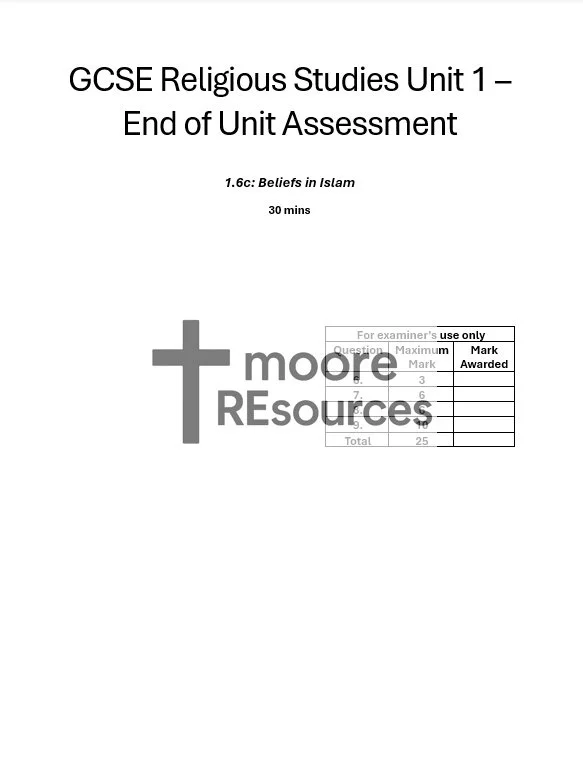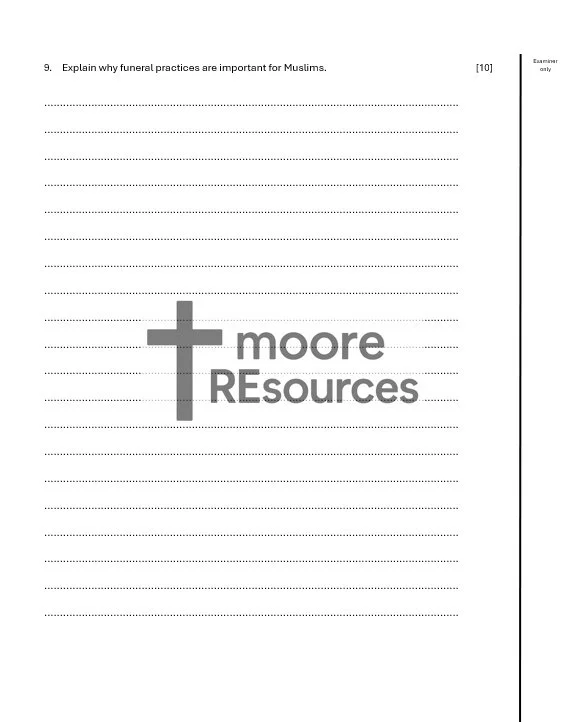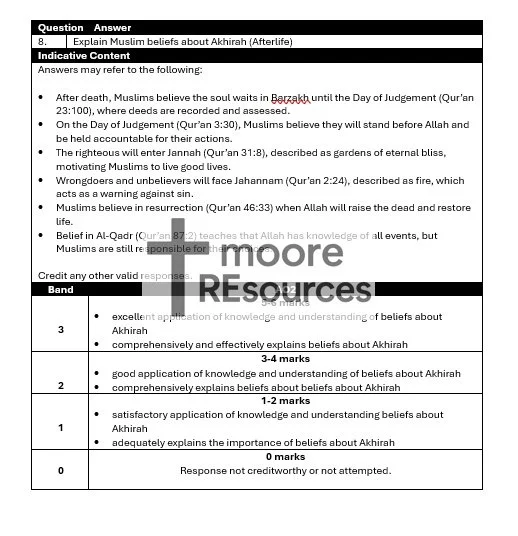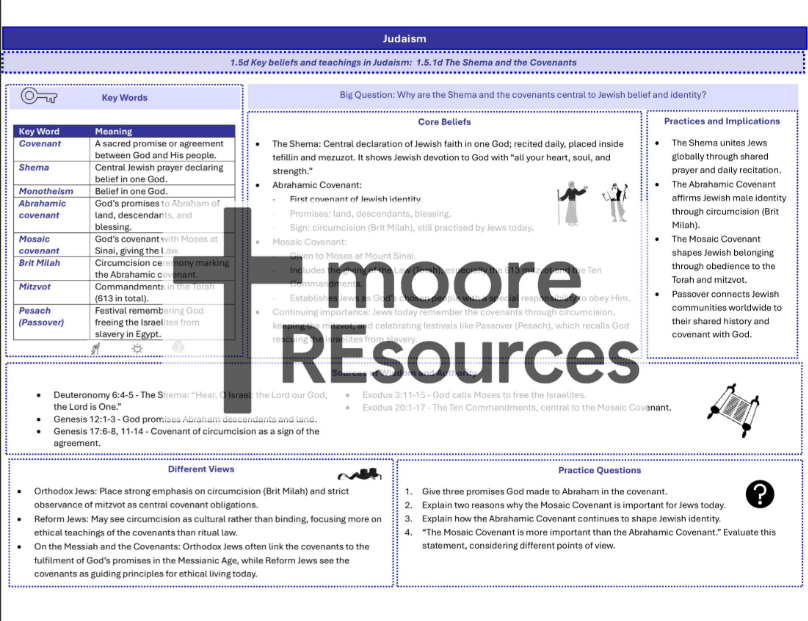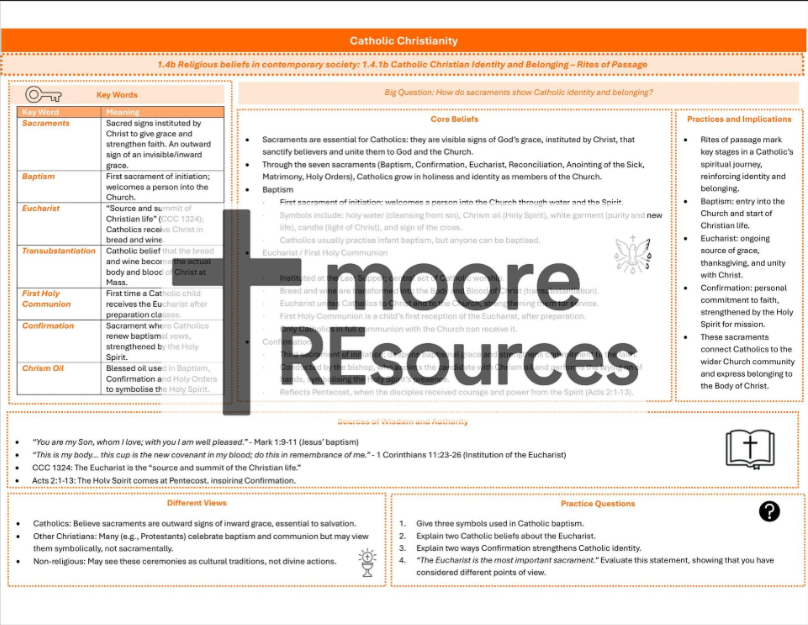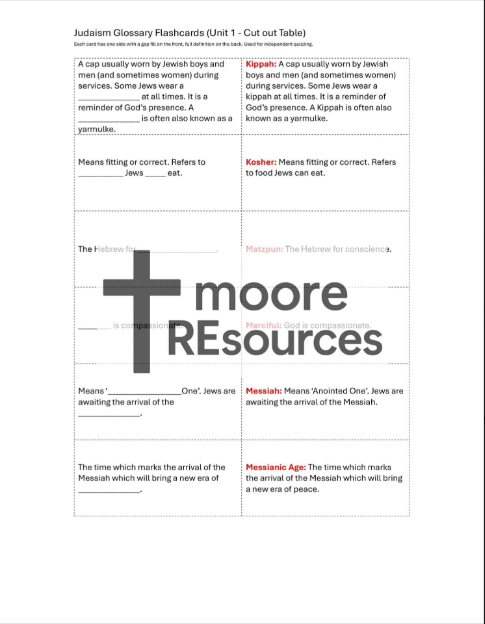 Image 1 of 4
Image 1 of 4

 Image 2 of 4
Image 2 of 4

 Image 3 of 4
Image 3 of 4

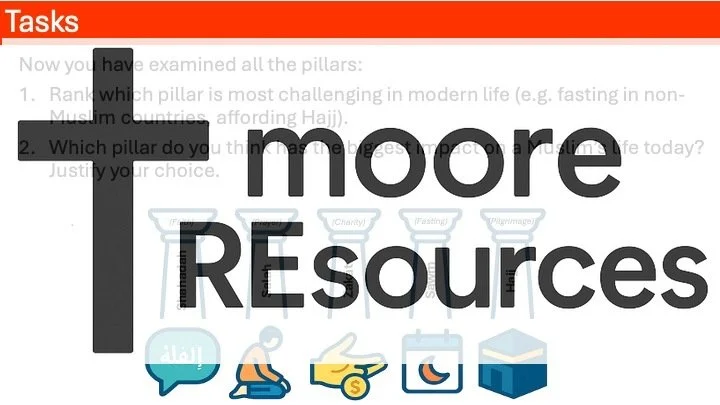 Image 4 of 4
Image 4 of 4





1.51 Key Beliefs and Teachings in Islam
Unpack the core theological foundations of Islam with this comprehensive Lesson Pack for 1.51: Key Beliefs and Teachings in Islam. Fully aligned with the WJEC Religious Studies 2025 specification, this resource introduces learners to essential Islamic doctrines, concepts of God, prophethood, and sacred texts in a clear, respectful, and accessible way.
Learners Will Understand:
Beliefs and Teachings about the Nature of Allah
Tawhid: belief in the oneness of Allah
Key attributes of Allah: immanent, transcendent, beneficent, merciful
Allah as omnipotent, omniscient, omnibenevolent, omnipresent
The significance of the 99 Names of Allah
Reasons for the prohibition of imagery and the avoidance of shirk
Prophethood in Islam
The role of prophets as messengers of guidance
Key figures in Islamic tradition: Adam, Ibrahim, Isa
Muhammad as the final prophet and the most complete example of submission to Allah
Islamic Beliefs and Teachings about the Soul
The soul as a divine creation and gift from Allah
The soul’s purpose and origin, created at conception and imbued with free will
The human being as both physical and spiritual
Foundational Teachings
Submission to Allah as the central purpose of life
The Shahadah as a public declaration of faith
The Five Pillars of Islam as a structure for belief in action
The concept and significance of greater jihad
Sacred Texts and Daily Life
The role of the Qur’an as the central source of authority and guidance
The Hadith as a key source of teaching through the example of the Prophet
Suitable for:
WJEC GCSE Religious Studies (2025)
Islam units at KS4
Core RE, revision, and homework tasks
Cover lessons and remote learning
Unpack the core theological foundations of Islam with this comprehensive Lesson Pack for 1.51: Key Beliefs and Teachings in Islam. Fully aligned with the WJEC Religious Studies 2025 specification, this resource introduces learners to essential Islamic doctrines, concepts of God, prophethood, and sacred texts in a clear, respectful, and accessible way.
Learners Will Understand:
Beliefs and Teachings about the Nature of Allah
Tawhid: belief in the oneness of Allah
Key attributes of Allah: immanent, transcendent, beneficent, merciful
Allah as omnipotent, omniscient, omnibenevolent, omnipresent
The significance of the 99 Names of Allah
Reasons for the prohibition of imagery and the avoidance of shirk
Prophethood in Islam
The role of prophets as messengers of guidance
Key figures in Islamic tradition: Adam, Ibrahim, Isa
Muhammad as the final prophet and the most complete example of submission to Allah
Islamic Beliefs and Teachings about the Soul
The soul as a divine creation and gift from Allah
The soul’s purpose and origin, created at conception and imbued with free will
The human being as both physical and spiritual
Foundational Teachings
Submission to Allah as the central purpose of life
The Shahadah as a public declaration of faith
The Five Pillars of Islam as a structure for belief in action
The concept and significance of greater jihad
Sacred Texts and Daily Life
The role of the Qur’an as the central source of authority and guidance
The Hadith as a key source of teaching through the example of the Prophet
Suitable for:
WJEC GCSE Religious Studies (2025)
Islam units at KS4
Core RE, revision, and homework tasks
Cover lessons and remote learning






